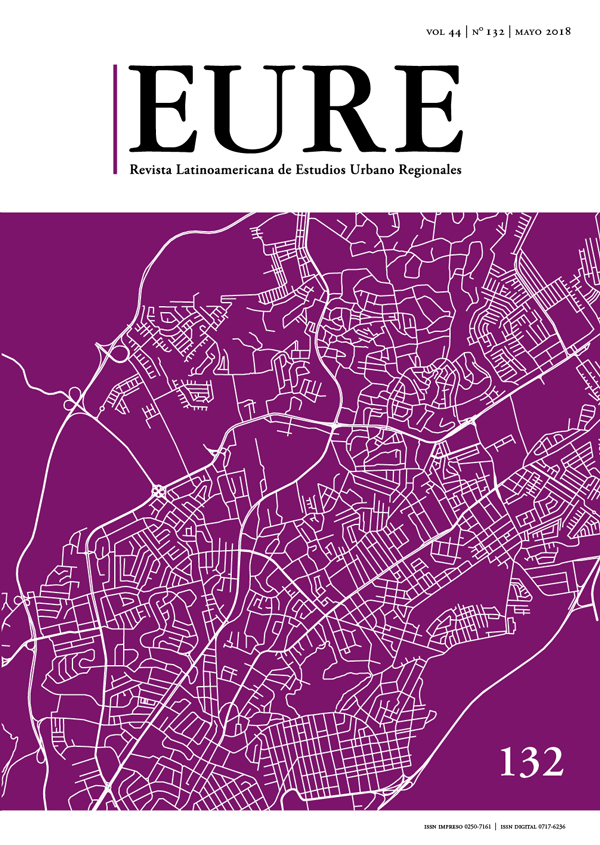Standardization of the Neoliberal Model of Residential Sprawl: beyond the Urban Boundary in Chile and Spain
DOI:
https://doi.org/10.4067/s0250-71612018000200027Keywords:
urban sprawl, urban planning, countryside-city relationshipAbstract
Contemporary urban growth adopts fragmented and sparsely dense patterns. The process has been taken as a general rule within a neoliberal state model, which, far from restricting the expansion of the urban by occupation of the rural space, promotes it by deregulating the use of undeveloped land. The ratification of state participation in the construction of this phenomenon requires the analysis of the tools that make it possible. Thus, using a methodology that includes the examination and comparison of normative bodies becomes inescapable to reveal the degree of administrative collaboration that, by action or omission, supports the production of residential space. Therefore, the objective of this study is to corroborate the generalized tendency towards the normalization of the diffuse city, which today is widely supported in Chile, reinforcing an advanced stage of a process which Spain is beginning to experience.
Metrics
Downloads
Published
How to Cite
Issue
Section
License
Copyright (c) 2018 Revista EURE - Revista de Estudios Urbano Regionales

This work is licensed under a Creative Commons Attribution 4.0 International License.
Al momento de aceptar la publicación de sus artículos, los autores deberán formalizar la cesión de derechos de autor a EURE, según las condiciones establecidas por la Revista.
Ésta establece que el autor autoriza a EURE de manera gratuita, exclusiva e ilimitada a reproducir, editar, publicar, distribuir, publicitar, comercializar y traducir el artículo, a cualquier soporte conocido o por conocer y desarrollar.
Del mismo modo, los autores aseguran que el artículo propuesto es original, no publicado y no propuesto para tal fin a otro medio de difusión.


